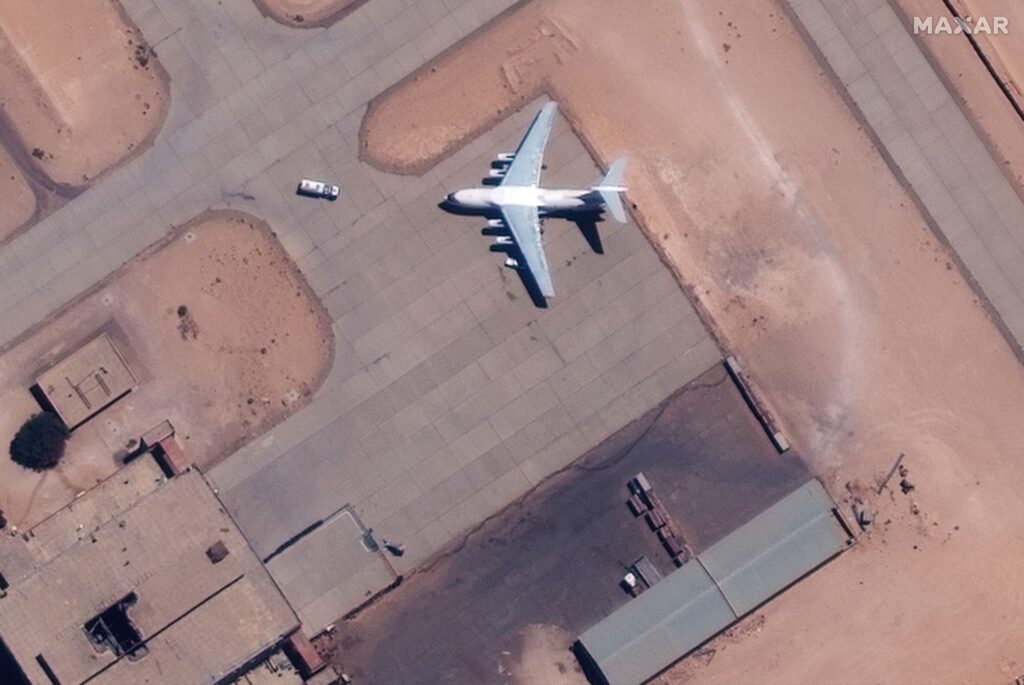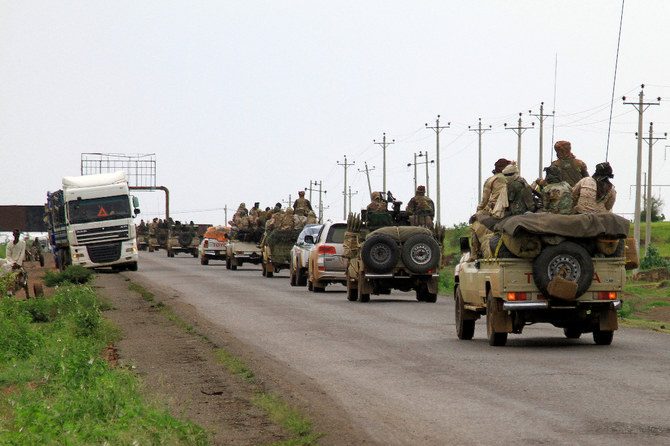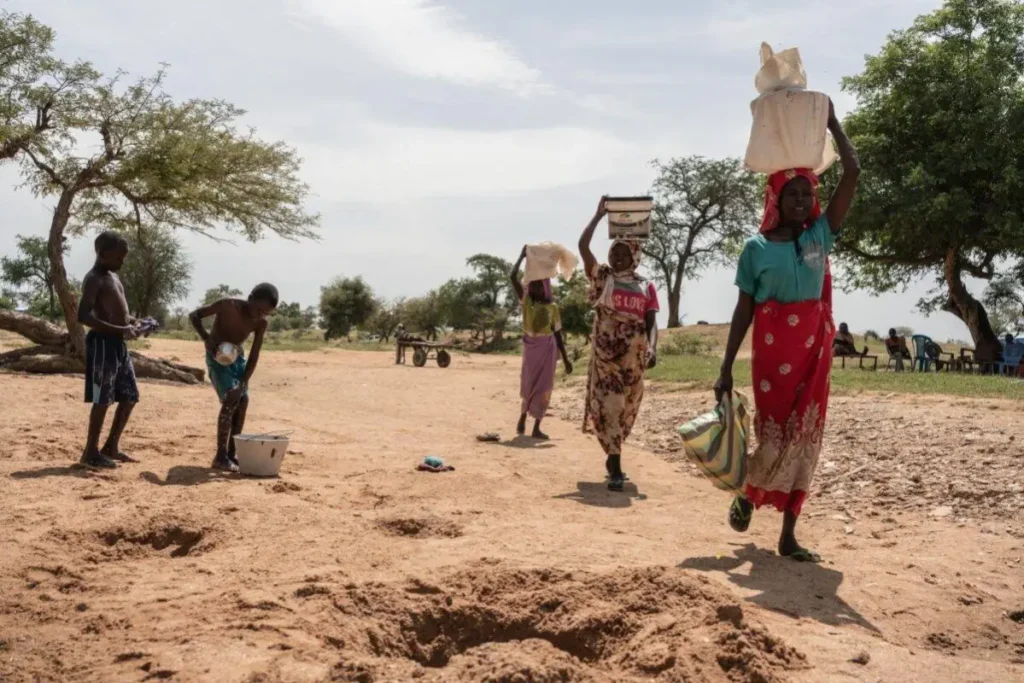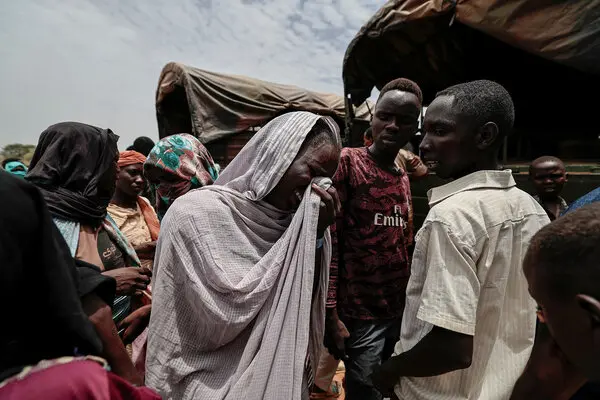
Russia is intensifying its efforts to advance and safeguard its strategic interests in Sudan by providing weaponry to the Sudanese Armed Forces (SAF) while concurrently aiding the Rapid Support Forces (RSF) through the Wagner Group, MEE reported on Wednesday.
Analysts suggest that Russia’s actions are driven by its aim to capitalize on the void created by the United States and to counter Ukraine’s military presence in Sudan, estimated to be comprised of 100 to 300 troops who predominantly operate alongside the SAF under the cover of darkness.
Meanwhile, sources within the armed opposition of the Central African Republic (CAR) have informed MEE that Wagner, the Russian military entity, continues its operations in the region, facilitating the transfer of arms from the United Arab Emirates to the RSF.
Recent reports indicate the capture of Wagner operatives in CAR, underscoring ongoing activities.
Russia’s engagement with both the RSF and the Sudanese army predates the outbreak of Sudan’s conflict on April 15th last year. Now surpassing a year, the conflict has resulted in tens of thousands of casualties and the displacement of eight million individuals, evolving into a dire humanitarian crisis.
Preceding the conflict, Russian Foreign Minister Sergei Lavrov’s visit to Khartoum included separate discussions with army chief Abdel Fattah al-Burhan and RSF leader Mohamed Hamdan Dagalo, also known as Hemeti, cementing Russia’s ties with key Sudanese factions.
While the Wagner Group has declared the cessation of its operations within Sudan, reports from diplomatic sources and eyewitnesses in Khartoum and Darfur contradict this, indicating the continued presence of Russian mercenaries in the region.
Russian focus shifts
There are indications that Russia is shifting its focus towards bolstering its ties with General Abdel Fattah al-Burhan and the government aligned with the army in Sudan.
Sudanese analyst Kholood Khair emphasizes the Kremlin’s support for Burhan, while also highlighting the backing provided by the Wagner Group, which operates as an extension of Russian foreign policy, to the RSF.
During a speech in Port Sudan on April 28th, Russian Deputy Foreign Minister Mikhail Bogdanov conveyed unequivocal support for the army-controlled Sovereignty Council of Sudan as the true representative of the Sudanese populace.
Bogdanov, leading a delegation that included military officials, engaged in discussions with Burhan in the Red Sea city, which serves as the operational hub for the army-aligned government.
Bogdanov underscored the fruitful collaboration between Russia and Sudan in mining endeavors, expressing optimism about the potential for enhanced cooperation.
Vice President of the Sovereignty Council, Malik Agar, echoed Bogdanov’s sentiments, emphasizing the longstanding history of cooperation between Sudan and Russia across various sectors.
Agar emphasized the importance of reinforcing collaboration and joint coordination, particularly within international forums such as the United Nations.
Weapons, gold and cookies
Bogdanov’s recent visit to Sudan didn’t just happen overnight. Two sources within Sudanese military circles, speaking anonymously to MEE, revealed that Ahmed Mufaddal, Sudan’s intelligence chief, had been in Russia the week before Bogdanov’s arrival.
Bogdanov, also known as Russian President Vladimir Putin’s special representative for the Middle East and Africa, touched down in Sudan following these diplomatic exchanges.
In preceding events, in April, Russia’s ambassador to Sudan, Andrey Chernovol, initiated discussions with General Abdel Fattah al-Burhan, head of Sudan’s Transitional Sovereignty Council, proposing to arm the Sudanese Armed Forces (SAF).
Reports suggest that during talks between Bogdanov’s delegation and Sudanese military officials, the Russians offered comprehensive military support to the SAF, which could entail specialized training and even the prospect of a Russian military presence within Sudan.
On May 4th, a Russian-registered transport aircraft originating from Dubai touched down in Port Sudan. The aircraft, an Abakan Air Ilyushin Il-76MD, had made several recent trips between Dubai and Aktau in Kazakhstan before its Port Sudan flight, as per Flightradar24 data.
Furthermore, Russia has recently initiated diesel exports to Sudan, with two vessels, Pavo Rock and Conga, delivering approximately 70,000 metric tonnes of diesel to Port Sudan in early April, according to LSEG data. Presently, the Marabella Sun oil tanker is docked in Port Sudan, indicating Russia’s continued efforts to secure markets for its refined products following the EU embargo in 2023.
Russian interests in Sudan extend beyond military and energy spheres, particularly in gold mining. Diplomatic sources in Khartoum have indicated collaboration between Russian entities, like the Wagner Group, and the Dagalo family in shipping gold from Darfur.
Dagalo, head of the Rapid Support Forces (RSF) and his family, possess a gold mining enterprise established on land seized in Darfur in 2017.
While Hemeti openly acknowledges his involvement in gold mining, these ventures significantly contribute to his and the RSF’s power and wealth.
A US official based in North Africa revealed that an estimated 32.7 tonnes of gold, valued at $1.9 billion, were smuggled out of Sudan between February 2022 and February 2023. This gold was reportedly transported on charter flights to a Russian-controlled airbase in Syria, disguised as cargo labeled as cookies, aiding Moscow’s economic stability post its conflict in Ukraine.
Game of diplomacy
“We do know that both sides are receiving support, both with weapons and other support to fuel their efforts to continue to destroy Sudan. And yes, we have engaged with parties on that, including with our colleagues from the UAE,” Linda Thomas-Greenfield, the US ambassador to the United Nations, said on 29 April.
According to al-Sharq, a US security delegation arrived in Port Sudan on Sunday to engage in joint discussions with state officials aligned with the army.
Sources close to the Sudanese army disclosed to MEE that ceasefire negotiations, facilitated by the US and Saudi Arabia, are set to resume in Jeddah, Saudi Arabia, on 15 May.
Recent revelations have shed light on Iranian assistance to the Sudanese Armed Forces. AC reported that Iran’s drones, including the Mohajer-4, Mohajer-6, and Ababil models, have been operational since January from the SAF’s Wadi Saydna air force base, located north of Khartoum.
Kholood Khair, a Sudanese analyst and founder of Confluence Advisory, agreed that Russia was “countering Ukraine” and filling a vacuum left by the US.
“Russia, the UAE and Israel play both sides, they don’t pick favourites,” Khair said. “The timing is because the Ukrainians were there not so long ago but the policy has always been the same, which is that the Kremlin backs Burhan and the Wagner Group, which is an arm of course of Russian foreign policy, backs the RSF,” she told MEE.
“That way they have a horse in the race no matter how this shakes out.”




